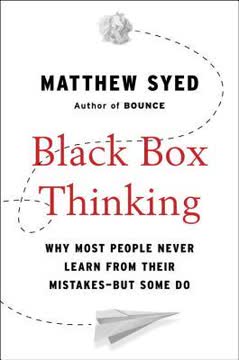Key Takeaways
1. Swim with the Sharks: Mastering Business Negotiations
Smile and say no until your tongue bleeds.
Negotiate from strength. Understanding the power dynamics in negotiations is crucial. The ability to walk away from a deal is often your strongest asset. Don't be afraid to say no, and remember that time is usually on the buyer's side.
Information is power. Before entering any negotiation, gather as much information as possible about the other party, their needs, and their constraints. This knowledge gives you leverage and helps you anticipate their moves.
- Key negotiation tactics:
- Create demand for your product or service
- Use the "cloning" technique to gather information
- Be prepared to walk away from a deal
- Treat suppliers like customers for long-term benefits
2. The Mackay 66: Know Your Customer Inside Out
People don't care how much you know about them once they realize how much you care about them.
Develop a comprehensive customer profile. The Mackay 66 is a detailed questionnaire designed to gather crucial information about customers, from their personal interests to their business goals. This depth of knowledge allows you to tailor your approach and build stronger relationships.
Use information strategically. The purpose of gathering this information isn't just to make small talk. It's to understand your customer's motivations, needs, and pain points. This allows you to:
- Anticipate their needs before they arise
- Provide personalized solutions
- Build trust and rapport over time
- Create a competitive advantage through deeper relationships
3. Salesmanship: It's Not What You Sell, It's How You Sell It
It's not how much it's worth, it's how much people think it's worth.
Create perceived value. Successful salesmanship isn't about pushing products; it's about creating a perception of value in the customer's mind. This involves understanding their needs, presenting solutions in a compelling way, and demonstrating how your offering meets their specific requirements.
Master the art of persuasion. Effective salespeople are skilled communicators who can:
- Tell compelling stories that resonate with customers
- Use social proof and testimonials to build credibility
- Address objections before they arise
- Create a sense of urgency without being pushy
- Follow up consistently and provide excellent after-sales service
Remember, the goal is not just to make a sale, but to create a satisfied customer who will return and refer others.
4. The Power of Networking and Relationship Building
Dig your well before you're thirsty.
Invest in relationships early and often. Building a strong network takes time and effort, but it's invaluable when you need support, information, or opportunities. Don't wait until you're in need to start networking.
Cultivate meaningful connections. Effective networking isn't about collecting business cards; it's about forming genuine relationships. Some strategies include:
- Attend industry events and conferences regularly
- Join professional associations and contribute actively
- Use social media to stay connected and share valuable insights
- Look for ways to help others without expecting immediate returns
- Follow up and maintain contact with your network consistently
Remember, the strength of your network often determines the height of your success.
5. Management Wisdom: Lead by Example, Not by Force
Little things don't mean a lot; they mean everything.
Pay attention to details. Effective managers understand that seemingly small actions can have a big impact on team morale and performance. Leading by example in areas like punctuality, preparedness, and professionalism sets the tone for the entire organization.
Create a positive work environment. Good managers:
- Recognize and reward good performance
- Provide constructive feedback
- Encourage open communication
- Foster a culture of continuous learning and improvement
- Trust their team members and delegate responsibilities
Remember, your team's success is your success. Focus on creating an environment where everyone can thrive.
6. Continuous Learning: Stay Ahead of the Competition
It isn't practice that makes perfect; you have to add one word: It's perfect practice that makes perfect.
Commit to lifelong learning. In a rapidly changing business environment, staying relevant requires constant learning and adaptation. Successful professionals never stop seeking new knowledge and skills.
Implement deliberate practice. To truly improve, you need to:
- Set specific goals for improvement
- Seek feedback from mentors and experts
- Analyze your performance and identify areas for growth
- Push yourself out of your comfort zone regularly
- Apply new knowledge and skills in real-world situations
Remember, the moment you stop learning is the moment you start falling behind your competition.
7. Determination and Goal-Setting: The Formula for Success
Determination + Goal-Setting + Concentration = Success
Set clear, ambitious goals. Success rarely happens by accident. Define what you want to achieve, both in the short term and long term. Make your goals specific, measurable, achievable, relevant, and time-bound (SMART).
Develop unwavering determination. Persistence in the face of obstacles is often what separates successful people from the rest. This involves:
- Maintaining a positive attitude in the face of setbacks
- Learning from failures and using them as stepping stones
- Staying focused on your goals, even when progress seems slow
- Surrounding yourself with supportive people who believe in your vision
- Celebrating small victories along the way to maintain motivation
Remember, success is not just about talent or opportunity; it's about relentless pursuit of your goals and the resilience to overcome challenges along the way.
Last updated:
FAQ
What's "Swim with the Sharks Without Being Eaten Alive" about?
- Business Strategies: The book provides strategies to outsell, outmanage, outmotivate, and outnegotiate your competition in the business world.
- Practical Advice: Harvey Mackay shares practical advice and anecdotes from his own experiences to help readers navigate the competitive business landscape.
- Focus on People Skills: Emphasizes the importance of understanding and connecting with people, whether they are customers, employees, or competitors.
- Comprehensive Guide: It covers various aspects of business, including salesmanship, negotiation, management, and personal development.
Why should I read "Swim with the Sharks Without Being Eaten Alive"?
- Real-World Insights: The book offers real-world insights and lessons from a successful businessman, making it highly applicable to everyday business situations.
- Actionable Tips: Provides actionable tips and techniques that can be implemented immediately to improve business performance.
- Inspirational Stories: Includes inspirational stories and examples that motivate readers to adopt a proactive and strategic approach to business challenges.
- Broad Applicability: The lessons are applicable not only to business professionals but also to anyone looking to improve their interpersonal and negotiation skills.
What are the key takeaways of "Swim with the Sharks Without Being Eaten Alive"?
- Importance of Networking: Building and maintaining a strong network is crucial for business success.
- Customer Knowledge: Understanding your customers deeply can give you a competitive edge.
- Negotiation Skills: The ability to say no and walk away from a deal is a powerful negotiation tool.
- Continuous Learning: Constantly updating your skills and knowledge is essential in a rapidly changing business environment.
What is the "Mackay 66" and why is it important?
- Customer Profile Tool: The "Mackay 66" is a 66-question customer profile designed to gather detailed information about customers.
- Builds Relationships: It helps salespeople build stronger relationships by understanding customers' personal and professional lives.
- Competitive Advantage: Knowing more about your customers than your competitors do can significantly enhance your sales strategy.
- Data Utilization: Encourages the use of collected data to create win-win situations for both the business and the customer.
How does Harvey Mackay suggest handling tough prospects?
- Introduction Strategy: Always get introduced to a prospect rather than making a cold call.
- Research and Preparation: Gather as much information as possible about the prospect and their company before the meeting.
- Time Management: Offer to meet for a very short, specific time to respect the prospect's schedule and intrigue them.
- Persistence: Position yourself as a strong number two option, ready to step in when the current provider fails.
What negotiation tactics does Harvey Mackay recommend?
- Say No: Learn to say no until you get the terms you want.
- Walk Away: Be prepared to walk away from the table if the deal isn't right.
- Information Gathering: Use information as a powerful tool to understand the other party's position and needs.
- Clone Strategy: Use a third party to test the waters and gather information before entering negotiations yourself.
What management advice does Harvey Mackay offer?
- Employee Freedom: Give employees the freedom to express their creativity and take ownership of their work.
- Attention to Detail: Emphasize the importance of paying attention to the little things that can make a big difference.
- Communication: Encourage open communication to ensure that bad news reaches you quickly.
- Recognition and Motivation: Use recognition and incentives to boost employee morale and productivity.
What are some of the best quotes from "Swim with the Sharks Without Being Eaten Alive" and what do they mean?
- "Smile and say no until your tongue bleeds." This emphasizes the importance of being firm in negotiations to get the best deal.
- "It isn’t the people you fire who make your life miserable; it’s the people you don’t." Highlights the necessity of making tough decisions to maintain a productive work environment.
- "A goal is a dream with a deadline." Stresses the importance of setting clear, actionable goals to achieve success.
- "If you don’t have a destination, you’ll never get there." Encourages having a clear vision and plan to guide your actions.
How does Harvey Mackay suggest dealing with competition?
- Know Your Competitors: Gather detailed information about your competitors to understand their strengths and weaknesses.
- Strategic Positioning: Use your knowledge of competitors to position your business advantageously in the market.
- Adaptability: Be willing to change your strategy based on the competitive landscape.
- Focus on Strengths: Leverage your unique strengths to differentiate yourself from the competition.
What role does personal development play in "Swim with the Sharks Without Being Eaten Alive"?
- Continuous Learning: Emphasizes the importance of lifelong learning and adapting to new challenges.
- Self-Belief: Encourages believing in oneself even when others doubt you.
- Role Models: Suggests seeking out role models to emulate and learn from.
- Fantasizing: Advocates for visualizing success as a way to motivate and guide your actions.
How does Harvey Mackay address the concept of risk-taking?
- Calculated Risks: Encourages taking calculated risks to achieve significant rewards.
- Learning from Failure: Views failure as a learning opportunity and a step towards success.
- Innovation: Suggests that innovation often requires stepping out of your comfort zone.
- Youth Advantage: Highlights that young people have less to lose and should take advantage of their ability to take risks.
What is the significance of networking according to Harvey Mackay?
- Building Relationships: Networking is about building genuine relationships that can provide support and opportunities.
- Long-Term Investment: Treat networking as a long-term investment rather than a short-term gain.
- Diverse Connections: Encourage building a diverse network that spans different industries and expertise.
- Reciprocity: Emphasizes the importance of giving back and helping others in your network.
Review Summary
Swim with the Sharks Without Being Eaten Alive receives mostly positive reviews, praised for its practical business advice and timeless wisdom. Readers appreciate Mackay's entertaining writing style, real-life examples, and emphasis on customer knowledge. Many find the book valuable for salespeople and entrepreneurs, highlighting its lessons on negotiation, management, and personal growth. Some criticize outdated references and potentially unethical tactics. Overall, reviewers consider it a classic business book with enduring relevance, despite being published in the 1980s.
Similar Books









Download PDF
Download EPUB
.epub digital book format is ideal for reading ebooks on phones, tablets, and e-readers.




